Family & Children Health › The Pregnancy › Weird things that can mess up with your fertility
Infertility is a relatively common condition. When patients are confronted with this diagnosis, there are medical, psychological, and financial sequelae. Patients often wonder if there is anything they can do to optimize their natural fertility or increase the effectiveness of infertility treatments.
A healthy man and a healthy woman gives birth to a healthy child. There are many instances when a healthy couple is not able to conceive because of female related infertility, male infertility or unidentified circumstances. Apart from this there are many factors that are against fertility which no one has ever thought of. If a couple is trying to get pregnant or even are planning for it in the near future, consideration should be given to following factors that really mess up with ones fertility and the suggested changes or recommendations should be adopted to boost fertility.
1. Artificial Night time Light
Habit of staring at smartphone or tablet screens at night, can disrupt sleep cycle. Artificial nighttime light exposure can harm both ability to conceive and fetal development if already pregnant. Late-night light exposure can suppress melatonin production, the "sleep hormone," that's also produced in the reproductive tract and blocks eggs from damaging free radicals, particularly during ovulation. Insufficient melatonin production can also disrupt a developing fetus' internal clock, resulting in long-term problems and further confusing a woman's biological clock.
2. Junk Food
Consumption of burger and fries deprives of right nutrients, such as monounsaturated fats, zinc, vitamin D, and B6. It means, body’s regulation of critical reproductive hormones like progesterone, insulin, and testosterone is disrupted. Consume healthy foods to boost body’s potential of having a baby. Also, make it certain to eat a heavy and nutritious breakfast because research published in Clinical Science found that consuming about half of daily calories in the a.m. could increase fertility. Junk food can also have adverse effect on weight, blood sugar, insulin production, cholesterol and cardiovascular disease.
3. Cholesterol Level
Results indicate that those couples in which either one or both had high cholesterol took considerably longer to become pregnant than those couples with cholesterol within the normal scale. Cholesterol levels may be an important factor in healthy couples who want to conceive and who don't have infertility problems. Cholesterol might be related to fertility because it is a building block of both male and female hormones. These hormones, such as estrogen and progesterone in women and testosterone in men, play a role in a couple's ability to become pregnant. They influence the quality of men's sperm and semen, as well as ovulation, implantation and the maintenance of a healthy pregnancy in women. Maintaining healthy cholesterol levels is important throughout life, both when people are younger and hoping to start a family and as they get older and want to prevent heart disease.
4. Stress
While stress does not cause infertility, infertility most definitely causes stress. Stress play a role in the success of infertility treatments, including in vitro fertilization (IVF). Being unable to get pregnant when one wants to, can be a huge source of stress, anxiety, and depression. While no one expects patients to approach fertility treatment stress-free, finding ways to minimise stress while pursuing treatment can help. Meditation, yoga, music therapy, walking, conversation with the partner does help in reducing stress. The goal of stress reduction is to minimise, not eliminate stress, by finding the technique that serves the patients needs the best.
5. Poor Oral Health
A study in the Journal of Periodontology found that women who needed fertility treatments had higher levels of gum bleeding and inflammation than those who conceived naturally. Women with gum disease took an average of 7.1 months to become pregnant – two months longer than women without gum disease (5.0 months). Women in child bearing age should be encouraged to have regular preventive dental check-ups in order to maintain good oral and periodontal health.
6. Smoking
If trying to get pregnant and is smoker, stop smoking now. Quitting may be one of the best things one can do for their health and for their fertility. Smokers are more likely to have fertility problems than non smokers. If smoking is done for many years, or smoke many cigarettes per day, risk for fertility problems increases. Smoking can lead to fertility problems, including ovulation problems, genetic issues, damage to reproductive organs, damage to eggs or premature menopause and increased risk of cancer and that of miscarriage. In addition, smokers that try fertility treatments tend to take longer to get pregnant. Smokers are also more likely to give birth to babies with health problems. Exposure to cigarette smoke for even just a few days can affect health and fertility.
7. Weight
There is a direct effect of weight on fertility as well as the outcome of infertility treatment and pregnancy. Many underweight, overweight, and obese women have no problem getting pregnant. But others will have problems conceiving, most often due to ovulation problems. There is good evidence that obesity lowers the success rates of in vitro fertilization (IVF). Studies have shown lower pregnancy rates and higher miscarriage rates in obese women and they are at an increased risk for developing pregnancy-induced (gestational) diabetes and high blood pressure (pre-eclampsia). Children of obese mothers are at increased risk of some birth defects and having a high birth weight. Low sperm counts and low sperm motility (movement) have been found more often in overweight and obese men than in normal-weight men.
8. Hormonal Imbalance
When a couple has difficulty conceiving, their fertility specialist will investigate whether they have a hormone imbalance.
A hormone imbalance occurs when hormones, the chemical messengers that help regulate body functions, are at improper levels, resulting in reproductive problems and infertility. Hormonal imbalances are quite common in women and men. However, for couple trying to conceive, hormonal imbalances can make it extremely difficult to get pregnant. Some women who suffer from hormonal imbalances are infertile and can not have children. Other hormonal imbalances effects are able to be reversed through treatments and medications, and these couples can go on to have successful pregnancies. Drug therapy to correct a hormone imbalance is the most common treatment for infertility.
9. Medications
It is less familiar that certain over-the-counter and prescription medications may also affect fertility. Woman's menstrual cycle is tightly controlled by the interaction between the brain, ovaries, and uterus, and any health problem or medication that disrupts this communication could adversely affect ovulation and make it challenging for women to achieve a pregnancy. Medicines can alter ovulation, and endometrial or uterine receptivity to a pregnancy, and it can possibly change sperm production. So if thinking about getting pregnant, talk to an ob-gyn about what medications are safe or unsafe, what might affect ability to conceive, and which medicines are currently taken. That way one may be able to find an alternative that won't interfere with getting pregnant.
10. Age and Fertility
Age is the most important factor affecting a woman’s chance to conceive and have a healthy child. As women age their fertility declines. A woman’s fertility starts to decline in her early 30s, with the decline speeding up after 35. At 40 a woman only has a 5% chance of becoming pregnant in any month. This is because a woman is born with all the eggs she is going to have in her lifetime. As she ages her eggs age with her, decreasing in quality and number. Also, the risk of miscarriage, and complications in pregnancy and childbirth, increase. As men age, levels of testosterone fall, and the volume and concentration of sperm change.
Learn in detail about fertility and infertility in male and female and the treatment options for the same at http://www.meandmummyindia.com/medical-services-index.htm
11. Breastfeeding
It is a common tale that one can’t get pregnant while breastfeeding because of the impact of breastfeeding and fertility rates. This is true, as long as you nurse according to the rules of natural child spacing. The same hormones that make milk suppress the release of reproductive hormones. While breastfeeding full-time most mothers do not ovulate and do not have menstrual periods. This means that pregnancy can be avoided, at least for a while.
12. Low Iron Levels May Affect Your Fertility
women who do not get sufficient amounts of iron may suffer anovulation (lack of ovulation) and possibly poor egg health, which can inhibit pregnancy at a rate 60% higher than those with sufficient iron stores in their blood. When the blood does not get enough iron, anemia, or an insufficient number of red blood cells, may develop. Since it is these red blood cells that deliver oxygen to all of the body’s tissue and organs including the ovaries and uterus, this deficiency may cause the eggs stored in the ovaries to weaken over time and become unviable. Worse yet, should conception occur, anemia makes it impossible for the growing fetus’ cells to divide and grow properly. This may result in a miscarriage in some cases.
13. Folic Acid Deficiency
If there’s one vitamin you should be consuming when you’re trying to get pregnant or you anticipate pregnancy in the future, its folic acid. Women who take folic acid supplements every day have a better chance of getting pregnant and it aids in conception too. Those taking a supplement regularly had a 40 per cent lower risk of suffering problems producing eggs - the second biggest cause of female infertility. Women hoping to become pregnant are advised to take a 0.4mg supplement of folic acid every day after stopping contraception, and for the first 12 weeks of pregnancy. The easiest and most reliable way to secure this intake is to take daily folic acid supplement or begin consuming sunflower seeds, spinach, eggs and grains like pastas and cereals for a natural folic acid boost.
14. Phthalates Use Of Cosmetics
Phthalates are a group of synthetic chemicals used in plastics and some cosmetics. It compromise your ability to conceive. Studies have shown phthalate exposure can mess with a man’s fertility and women with the most phthalates in their systems were twice as likely to suffer from implantation failure after IVF procedures as compared to women with the lowest level of phthalates. Many of the products that we apply directly to our skin are made from the same harsh chemicals used in industry, and are known hormone disruptor’s for both men and women.
15. Chronic Health Conditions
When you’re fighting a chronic illness, your reproductive system becomes a fairly low priority for your body, which may need to pay more attention to vital organs like the heart, brain, kidneys and lungs, and less attention to the ovaries or uterus. A wide variety of chronic illnesses, from heart disease to diabetes, can suppress both ovulation and sperm production, which can make it difficult to get pregnant. Thyroid disorders can also stop ovulation. If you’re fighting cancer, the treatments themselves, including chemotherapy drugs and radiation to the pelvic area, can suppress fertility. If you live with a chronic illness, talk to your doctor about ways to get your symptoms under control and what you may be able to do to improve your fertility odds.
Pregnancy is a result of a complex combination of factors and events. Healthy lifestyles are important for everyone — but they’re especially important if one is trying to get pregnant. What is put into body will definitely affect health, eggs and sperm, and it's important to take control for the best possible outcome. Making lifestyle modifications may aid in achieving the ultimate goal of a healthy pregnancy. It is the role of the physician to help the patient identify modifiable risk factors, especially given the cost and time commitment associated with fertility treatments. All patients should be encouraged to strive for a healthy, sustainable lifestyle.
Struggling with infertility can be a highly upsetting and personal experience. As the rates of infertility continue to climb we must look for all natural solutions when this natural process of fertility goes awry. The costs of traditional drug and surgery treatments for infertility are not only costly financially, they can take a physical toll down the road for both the parents and conceived child.
Healthy lifestyle habits can help preserve fertility for a longer period of time. So, if a couple is trying to get pregnant, or foresee a mini-you sometime in the future, it’s imperative to learn what changes might be in stock that will boost the chances of pregnancy. Consider the simple steps that will help keep a healthy reproductive system of women. It is common sense advice that one keeps her in a healthy condition when trying for a baby.
If you are thinking about pregnancy and if there is any initial hindrances consult OB-GYN doctor. It can help identify ways to help improve fertility and increase chances of getting pregnant. These are just some of the dos and donts that can impact successful conception and more importantly, the future health of the baby. There are other factors and it is important to learn all one can, about how small changes can impact fertility and the baby that is to be born. Specialists can help identify ways to improve fertility and boost chances of getting pregnant.
Me and Mummy hospital & IVF Centre in Surat is led by Dr.Praful Doshi and Dr.Mitshu Doshi along with a team of associate doctors, nurses, embryologists and counselors, all of whom specialise in gynaecology and infertility treatment. The team of doctors evaluate every couple including their blood work out, their habits, lifestyle, stress level, exposure to toxins, work pattern, diet habit and all small things related to pregnancy. The treatment is based on individual basis and thorough evaluation is made and plan of treatment is prepared.
Consult the team of fertility and infertility specialist of Me and Mummy hospital & IVF Centre at http://www.meandmummyindia.com or can talk to them at 91-261-2471111

A healthy man and a healthy woman gives birth to a healthy child. There are many instances when a healthy couple is not able to conceive because of female related infertility, male infertility or unidentified circumstances. Apart from this there are many factors that are against fertility which no one has ever thought of. If a couple is trying to get pregnant or even are planning for it in the near future, consideration should be given to following factors that really mess up with ones fertility and the suggested changes or recommendations should be adopted to boost fertility.
1. Artificial Night time Light
Habit of staring at smartphone or tablet screens at night, can disrupt sleep cycle. Artificial nighttime light exposure can harm both ability to conceive and fetal development if already pregnant. Late-night light exposure can suppress melatonin production, the "sleep hormone," that's also produced in the reproductive tract and blocks eggs from damaging free radicals, particularly during ovulation. Insufficient melatonin production can also disrupt a developing fetus' internal clock, resulting in long-term problems and further confusing a woman's biological clock.
2. Junk Food
Consumption of burger and fries deprives of right nutrients, such as monounsaturated fats, zinc, vitamin D, and B6. It means, body’s regulation of critical reproductive hormones like progesterone, insulin, and testosterone is disrupted. Consume healthy foods to boost body’s potential of having a baby. Also, make it certain to eat a heavy and nutritious breakfast because research published in Clinical Science found that consuming about half of daily calories in the a.m. could increase fertility. Junk food can also have adverse effect on weight, blood sugar, insulin production, cholesterol and cardiovascular disease.
3. Cholesterol Level
Results indicate that those couples in which either one or both had high cholesterol took considerably longer to become pregnant than those couples with cholesterol within the normal scale. Cholesterol levels may be an important factor in healthy couples who want to conceive and who don't have infertility problems. Cholesterol might be related to fertility because it is a building block of both male and female hormones. These hormones, such as estrogen and progesterone in women and testosterone in men, play a role in a couple's ability to become pregnant. They influence the quality of men's sperm and semen, as well as ovulation, implantation and the maintenance of a healthy pregnancy in women. Maintaining healthy cholesterol levels is important throughout life, both when people are younger and hoping to start a family and as they get older and want to prevent heart disease.
4. Stress
While stress does not cause infertility, infertility most definitely causes stress. Stress play a role in the success of infertility treatments, including in vitro fertilization (IVF). Being unable to get pregnant when one wants to, can be a huge source of stress, anxiety, and depression. While no one expects patients to approach fertility treatment stress-free, finding ways to minimise stress while pursuing treatment can help. Meditation, yoga, music therapy, walking, conversation with the partner does help in reducing stress. The goal of stress reduction is to minimise, not eliminate stress, by finding the technique that serves the patients needs the best.
5. Poor Oral Health
A study in the Journal of Periodontology found that women who needed fertility treatments had higher levels of gum bleeding and inflammation than those who conceived naturally. Women with gum disease took an average of 7.1 months to become pregnant – two months longer than women without gum disease (5.0 months). Women in child bearing age should be encouraged to have regular preventive dental check-ups in order to maintain good oral and periodontal health.
6. Smoking
If trying to get pregnant and is smoker, stop smoking now. Quitting may be one of the best things one can do for their health and for their fertility. Smokers are more likely to have fertility problems than non smokers. If smoking is done for many years, or smoke many cigarettes per day, risk for fertility problems increases. Smoking can lead to fertility problems, including ovulation problems, genetic issues, damage to reproductive organs, damage to eggs or premature menopause and increased risk of cancer and that of miscarriage. In addition, smokers that try fertility treatments tend to take longer to get pregnant. Smokers are also more likely to give birth to babies with health problems. Exposure to cigarette smoke for even just a few days can affect health and fertility.
7. Weight
There is a direct effect of weight on fertility as well as the outcome of infertility treatment and pregnancy. Many underweight, overweight, and obese women have no problem getting pregnant. But others will have problems conceiving, most often due to ovulation problems. There is good evidence that obesity lowers the success rates of in vitro fertilization (IVF). Studies have shown lower pregnancy rates and higher miscarriage rates in obese women and they are at an increased risk for developing pregnancy-induced (gestational) diabetes and high blood pressure (pre-eclampsia). Children of obese mothers are at increased risk of some birth defects and having a high birth weight. Low sperm counts and low sperm motility (movement) have been found more often in overweight and obese men than in normal-weight men.
8. Hormonal Imbalance
When a couple has difficulty conceiving, their fertility specialist will investigate whether they have a hormone imbalance.
A hormone imbalance occurs when hormones, the chemical messengers that help regulate body functions, are at improper levels, resulting in reproductive problems and infertility. Hormonal imbalances are quite common in women and men. However, for couple trying to conceive, hormonal imbalances can make it extremely difficult to get pregnant. Some women who suffer from hormonal imbalances are infertile and can not have children. Other hormonal imbalances effects are able to be reversed through treatments and medications, and these couples can go on to have successful pregnancies. Drug therapy to correct a hormone imbalance is the most common treatment for infertility.
9. Medications
It is less familiar that certain over-the-counter and prescription medications may also affect fertility. Woman's menstrual cycle is tightly controlled by the interaction between the brain, ovaries, and uterus, and any health problem or medication that disrupts this communication could adversely affect ovulation and make it challenging for women to achieve a pregnancy. Medicines can alter ovulation, and endometrial or uterine receptivity to a pregnancy, and it can possibly change sperm production. So if thinking about getting pregnant, talk to an ob-gyn about what medications are safe or unsafe, what might affect ability to conceive, and which medicines are currently taken. That way one may be able to find an alternative that won't interfere with getting pregnant.
10. Age and Fertility
Age is the most important factor affecting a woman’s chance to conceive and have a healthy child. As women age their fertility declines. A woman’s fertility starts to decline in her early 30s, with the decline speeding up after 35. At 40 a woman only has a 5% chance of becoming pregnant in any month. This is because a woman is born with all the eggs she is going to have in her lifetime. As she ages her eggs age with her, decreasing in quality and number. Also, the risk of miscarriage, and complications in pregnancy and childbirth, increase. As men age, levels of testosterone fall, and the volume and concentration of sperm change.
Learn in detail about fertility and infertility in male and female and the treatment options for the same at http://www.meandmummyindia.com/medical-services-index.htm
11. Breastfeeding
It is a common tale that one can’t get pregnant while breastfeeding because of the impact of breastfeeding and fertility rates. This is true, as long as you nurse according to the rules of natural child spacing. The same hormones that make milk suppress the release of reproductive hormones. While breastfeeding full-time most mothers do not ovulate and do not have menstrual periods. This means that pregnancy can be avoided, at least for a while.
12. Low Iron Levels May Affect Your Fertility
women who do not get sufficient amounts of iron may suffer anovulation (lack of ovulation) and possibly poor egg health, which can inhibit pregnancy at a rate 60% higher than those with sufficient iron stores in their blood. When the blood does not get enough iron, anemia, or an insufficient number of red blood cells, may develop. Since it is these red blood cells that deliver oxygen to all of the body’s tissue and organs including the ovaries and uterus, this deficiency may cause the eggs stored in the ovaries to weaken over time and become unviable. Worse yet, should conception occur, anemia makes it impossible for the growing fetus’ cells to divide and grow properly. This may result in a miscarriage in some cases.
13. Folic Acid Deficiency
If there’s one vitamin you should be consuming when you’re trying to get pregnant or you anticipate pregnancy in the future, its folic acid. Women who take folic acid supplements every day have a better chance of getting pregnant and it aids in conception too. Those taking a supplement regularly had a 40 per cent lower risk of suffering problems producing eggs - the second biggest cause of female infertility. Women hoping to become pregnant are advised to take a 0.4mg supplement of folic acid every day after stopping contraception, and for the first 12 weeks of pregnancy. The easiest and most reliable way to secure this intake is to take daily folic acid supplement or begin consuming sunflower seeds, spinach, eggs and grains like pastas and cereals for a natural folic acid boost.
14. Phthalates Use Of Cosmetics
Phthalates are a group of synthetic chemicals used in plastics and some cosmetics. It compromise your ability to conceive. Studies have shown phthalate exposure can mess with a man’s fertility and women with the most phthalates in their systems were twice as likely to suffer from implantation failure after IVF procedures as compared to women with the lowest level of phthalates. Many of the products that we apply directly to our skin are made from the same harsh chemicals used in industry, and are known hormone disruptor’s for both men and women.
15. Chronic Health Conditions
When you’re fighting a chronic illness, your reproductive system becomes a fairly low priority for your body, which may need to pay more attention to vital organs like the heart, brain, kidneys and lungs, and less attention to the ovaries or uterus. A wide variety of chronic illnesses, from heart disease to diabetes, can suppress both ovulation and sperm production, which can make it difficult to get pregnant. Thyroid disorders can also stop ovulation. If you’re fighting cancer, the treatments themselves, including chemotherapy drugs and radiation to the pelvic area, can suppress fertility. If you live with a chronic illness, talk to your doctor about ways to get your symptoms under control and what you may be able to do to improve your fertility odds.
Pregnancy is a result of a complex combination of factors and events. Healthy lifestyles are important for everyone — but they’re especially important if one is trying to get pregnant. What is put into body will definitely affect health, eggs and sperm, and it's important to take control for the best possible outcome. Making lifestyle modifications may aid in achieving the ultimate goal of a healthy pregnancy. It is the role of the physician to help the patient identify modifiable risk factors, especially given the cost and time commitment associated with fertility treatments. All patients should be encouraged to strive for a healthy, sustainable lifestyle.
Struggling with infertility can be a highly upsetting and personal experience. As the rates of infertility continue to climb we must look for all natural solutions when this natural process of fertility goes awry. The costs of traditional drug and surgery treatments for infertility are not only costly financially, they can take a physical toll down the road for both the parents and conceived child.
Healthy lifestyle habits can help preserve fertility for a longer period of time. So, if a couple is trying to get pregnant, or foresee a mini-you sometime in the future, it’s imperative to learn what changes might be in stock that will boost the chances of pregnancy. Consider the simple steps that will help keep a healthy reproductive system of women. It is common sense advice that one keeps her in a healthy condition when trying for a baby.
If you are thinking about pregnancy and if there is any initial hindrances consult OB-GYN doctor. It can help identify ways to help improve fertility and increase chances of getting pregnant. These are just some of the dos and donts that can impact successful conception and more importantly, the future health of the baby. There are other factors and it is important to learn all one can, about how small changes can impact fertility and the baby that is to be born. Specialists can help identify ways to improve fertility and boost chances of getting pregnant.
Me and Mummy hospital & IVF Centre in Surat is led by Dr.Praful Doshi and Dr.Mitshu Doshi along with a team of associate doctors, nurses, embryologists and counselors, all of whom specialise in gynaecology and infertility treatment. The team of doctors evaluate every couple including their blood work out, their habits, lifestyle, stress level, exposure to toxins, work pattern, diet habit and all small things related to pregnancy. The treatment is based on individual basis and thorough evaluation is made and plan of treatment is prepared.
Consult the team of fertility and infertility specialist of Me and Mummy hospital & IVF Centre at http://www.meandmummyindia.com or can talk to them at 91-261-2471111
Article By: Me and Mummy Hospital and IVF Centre
larynx
humerus
corpus callosum
midbrain
neck anatomy
humerus
nasal cavity
heart anatomy
midbrain
cranial nerves
eye anatomy
ear anatomy
neck muscles
muscular system
stomach anatomy
stomach
humerus bone
NOSE ANATOMY
Cerebrum
cerebral cortex
FEMUR
anatomy of the neck
humerus bone
eye anatomy
stomach anatomy
pelvic girdle
temporal lobe
Pituitary gland
visual pathway
eye diagram
eye anatomy
femur
falx cerebri
ear anatomy
vagus nerve
neck anatomy
muscular system
heart anatomy
anatomy of neck
eye diagram
lung anatomy
eye anatomy
lung anatomy
nasal cavity
pelvic girdle
visual pathway
brain anatomy
neck anatomy
skeletal system
midbrain
Most Read
New Articles
Most Viewed
Most Downloads
 Basal Cell Carcinoma ("Rodent Ulcer" Type)
Basal Cell Carcinoma ("Rodent Ulcer" Type)
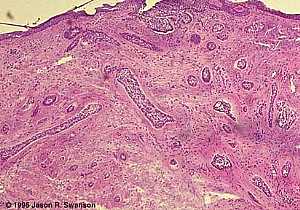 Basal Cell Carcinoma (Histology-Morpheaform Type)
Basal Cell Carcinoma (Histology-Morpheaform Type)
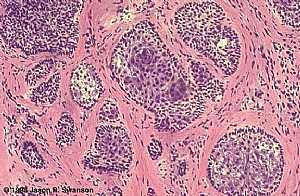 Basal Cell Carcinoma (Histology-Nodular Type - High power)
Basal Cell Carcinoma (Histology-Nodular Type - High power)
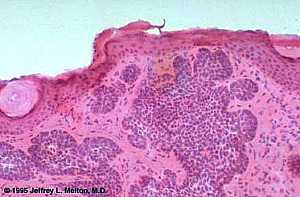 Basal Cell Carcinoma (Histology-Nodular Type- High power)
Basal Cell Carcinoma (Histology-Nodular Type- High power)
 Skin
Skin
 Nervous System -- Basic
Nervous System -- Basic
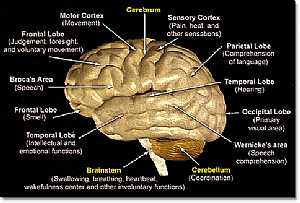 Brain anatomy
Brain anatomy
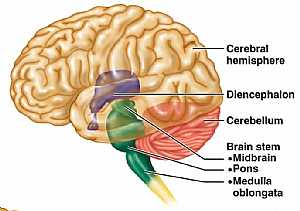 Brain anatomy
Brain anatomy
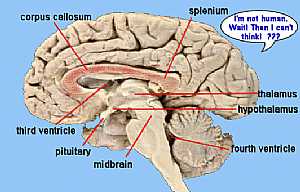 Brain anatomy
Brain anatomy
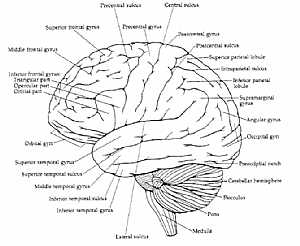 Brain anatomy
Brain anatomy
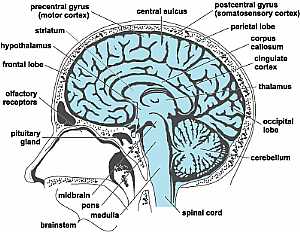 Head anatomy
Head anatomy
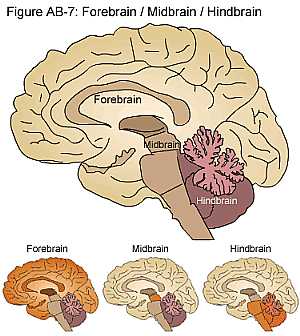 Brain anatomy
Brain anatomy
eDoctorOnline.com does not provide medical advice, diagnosis or treatment.
© Copyright 2001-2022 eDoctorOnline.com
© Copyright 2001-2022 eDoctorOnline.com

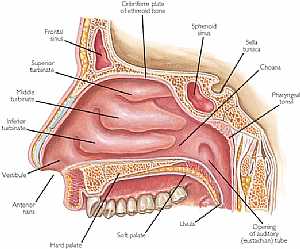 Nose anatomy
Nose anatomy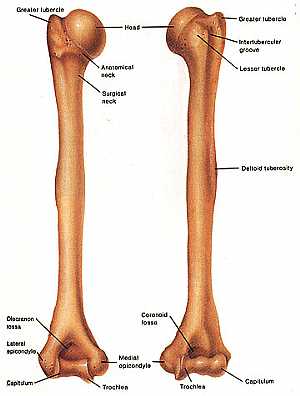 Humerus bone
Humerus bone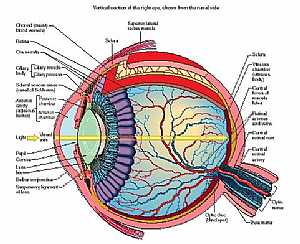 Eye anatomy
Eye anatomy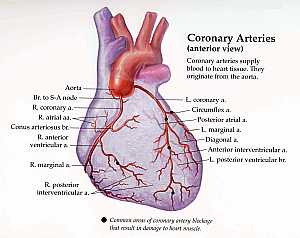 Coronary arteries anatomy
Coronary arteries anatomy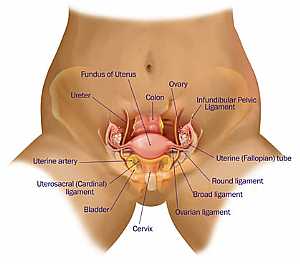 Female pelvic anatomy
Female pelvic anatomy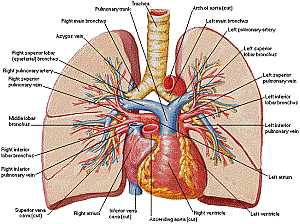 Heart and lung anatomy
Heart and lung anatomy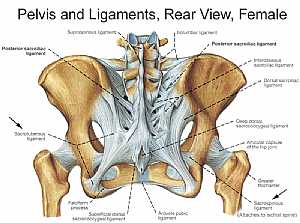 Bones and ligaments of the FEMALE Pelvis
Bones and ligaments of the FEMALE Pelvis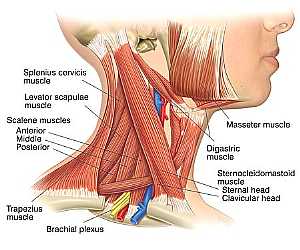 Neck Anatomy
Neck Anatomy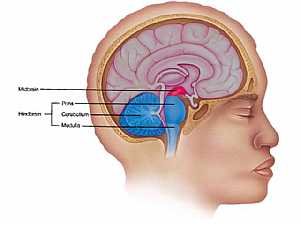 MidBrain anatomy
MidBrain anatomy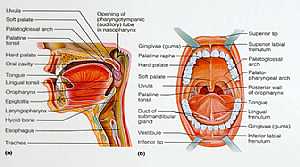 Oral Cavity
Oral Cavity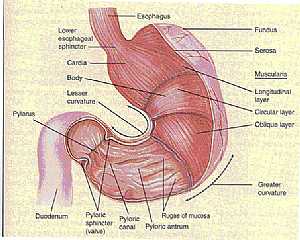 Stomach anatomy
Stomach anatomy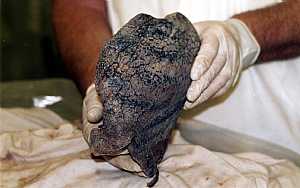 Lung anatomy
Lung anatomy Basal Cell Carcinoma ("Rodent Ulcer" Type)
Basal Cell Carcinoma ("Rodent Ulcer" Type) Basal Cell Carcinoma (Histology-Morpheaform Type)
Basal Cell Carcinoma (Histology-Morpheaform Type) Basal Cell Carcinoma (Histology-Nodular Type - High power)
Basal Cell Carcinoma (Histology-Nodular Type - High power) Basal Cell Carcinoma (Histology-Nodular Type- High power)
Basal Cell Carcinoma (Histology-Nodular Type- High power) Skin
Skin Nervous System -- Basic
Nervous System -- Basic Brain anatomy
Brain anatomy Brain anatomy
Brain anatomy Brain anatomy
Brain anatomy Brain anatomy
Brain anatomy Head anatomy
Head anatomy Brain anatomy
Brain anatomy
Be the first one to comment on this article!